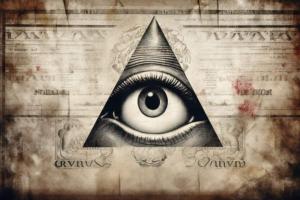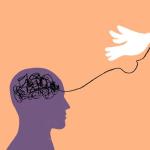
A conspiracy theory is a dangerous thing, convincing ordinary people that a huge number of bad faith actors are secretly working together to push an agenda on us for nefarious purposes. Necessarily, channels that push these theories breed cynicism and distrust, dividing society into those who are ‘in the know’ and those who aren’t.
One of the most worrying trends of the post-truth age is that conspiracy theories have entered the mainstream. What used to be spoken of in hushed tones and quiet corners is now proudly announced for all to hear, gaining droves of followers who aren’t fully aware of the levels of deception now permitted and promoted in the public arena.
The post-truth age, which began in earnest in 2016, has greatly confused multitudes of people who can no longer tell the difference between fact and fiction. Certain news outlets have lost their integrity, sharing what itching ears want to hear in the knowledge that what they’re saying is false. This great undermining of national sanity is also a threat to democracy and peace.
A friend of mine started getting sucked into conspiracy theories during Obama’s presidency. I looked on in horror, unable to challenge him without causing a permanent rift in the friendship, as his grip on reality weakened and then failed entirely. One of the conspiracies he shared on social media stood out as particularly difficult to comprehend: according to my friend (and the conspiracy theorists he followed), Obama’s administration were covertly transporting full-sized guillotines across the US and storing them in concentration camps built to imprison and murder Christians. Quite extraordinary! My friend was far from stupid, and he was also genial, kind, and generous – a good, Christian man – and yet for reasons I’m yet to understand, he scurried down the deepest rabbit hole and to this day is entirely lost.
Losing a friend hurts, and seeing them rush to destruction is worse. Sadly, it seems that Christians are particularly susceptible to this trap while the world looks on in dismay, writing us off as fools. The purpose of this article is to help believers dust off their brains and hit the on-switch, in the hope they redeem themselves and others from deception.
One of the arguments used against people who are willing to identify and label a conspiracy theory is that we receive our news through ‘mainstream media’, and are therefore being fed lies, following the false path laid by our ‘thought leaders’. I intend to debunk that idea, presenting a credible and consistent method of identifying a conspiracy theorist that relies on logic alone. I propose a series of tests to expose conspiracy theorists for what they are. None of these tests work in isolation, but if considered as a whole, the pattern and motivation for deception begins to emerge:
Test 1: Follow the money trail
Is the person sharing the conspiracy making money from it? I’d suggest that the more money being made, the more questionable the individual. We all know that Alex Jones – someone who has gained a ‘net-worth’ (awful term!) of at least $100 million by peddling conspiracy theories to the masses – is being held to account for the lies he shared about the Sandy Hook shooting.
Test 2: Is the suspected conspiracy theorist attention-seeking or narcissistic?
There are other forms of gain that people seek from sharing conspiracy theories, one of which is the attention of others. I’d argue that if a person who’s making a killing off their channels is also something of an attention seeker, the likelihood of their commentary being honest and well-motivated is low.
Test 3: How important does the individual make themselves?
The desire to feel important is a common failing – the addictive need to be a key voice, someone who is listened to and respected. Some whom I consider conspiracy theorists announce themselves as they crucial voice of alarm against an incoming threat – a highly addictive rush for the needy person.
Test 4: Does the suspected conspiracy theorist present verifiable evidence?
One of the starkest examples of bold claims made despite a complete lack of evidence, in my view, is the claim that the 2020 US election was stolen. Over 50 lawsuits presented by Donald Trump and his allies were dismissed by federal judges, many of whom were Republicans. At the end of the day, there isn’t a shred of evidence that stands up to scrutiny.
If a person continually shares theories that lack verifiable evidence, is made to feel incredibly important by what they share, is an attention-seeking or even narcissistic individual, and makes considerable financial gains from their channels, I think the likelihood that they are an honest, well-intentioned commentator is close to zero.
Applying Occam’s Razor
Occam’s razor is a widely accepted principle of sound logic, arguing that if you have two ideas competing to explain the same phenomenon, the simpler one should be preferred. In other words, the simplest explanation is usually the right one.
This won’t always be true, but in the vast majority of cases, thinking this way piercingly illuminates the murk of claim and counterclaim. If we take the 2020 election as an example, there are two competing theories, one of which is simple and the other as grand and convoluted as anything devised in the wildest fantasy novel.
Theory 1: That vast hoards of bad-faith actors managed to cover up a stolen election across all US states, including Republican governors and lawmakers, without making a single slip up that amounts to evidence. This would include all those working at voting booths, local government organisations, ordinary people observing what was going on around them, and the entire national legislative organisation.
Theory 2: That Joe Biden won the election.
I know which theory Sir William of Ockham would have backed, especially given the recording of Trump calling the Governor of Georgia, asking for him to find 11,780 extra votes to overturn the result in that state.
The Church is responsible to seek and promote the truth
This might all read like politics, to some, but that’s not the purpose of this post. The Church is called to be God’s hands and feet in the Earth, which means we heal and do not harm; we speak the truth in love and do not deceive. The post-truth age, which I believe was massively turbo-charged by the many deceits propagated by Donald Trump, has done immense harm to societal unity and peace. People just don’t know what to believe anymore, because nobody’s encouraging them to think for themselves. The message of the conspiracy theorist is often thus: Just drink the Kool-Aid, jump on board, and off we go to Crazytown!
I don’t care who individual readers vote for but I do care that Christians are able to use their brains and see through harmful deceptions that divide society in two – something which only serves the forces of evil. I worry about the politicisation of the US church and the effect that has on hearts and minds. If we are lazy in our acceptance of the information gleaned from our favourite channels, failing to interrogate and challenge assertions, we become useful fools for anyone motivated enough to deceive us. If we are not only deceived but share that deceit, we are now perpetrators of harm – we become part of the problem.
Since 2020, I’ve longed to see just one of my American friends who got sucked into conspiracy theories about that event raise their hand and apologise for the part they played. For me, that would be the humble and Christlike thing to do, and would help to facilitate the healing we desperately need. Any takers?













